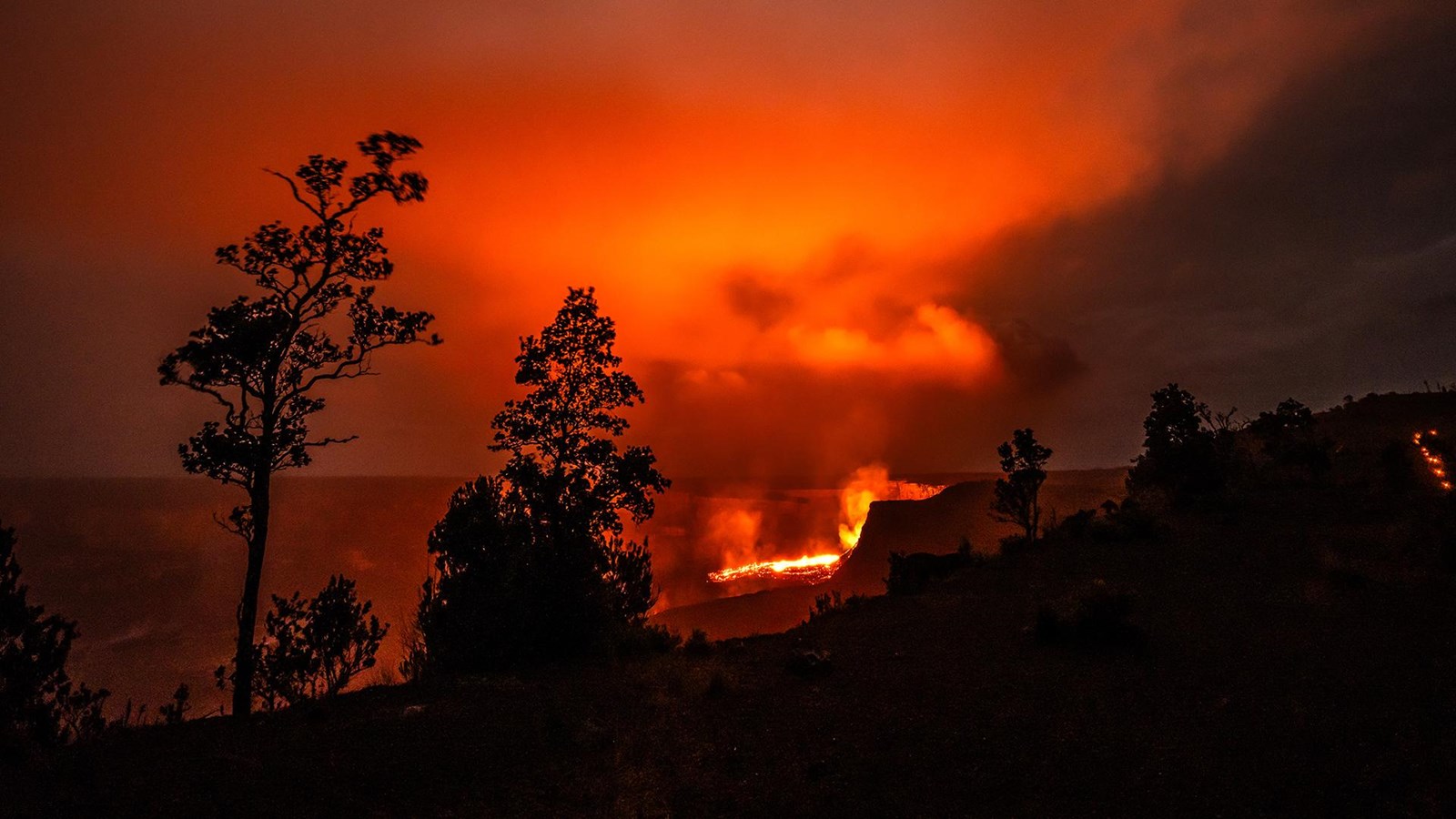Last updated: April 11, 2025
Place
Eruption Viewing from Kīlauea Overlook (Kapalikapuokamohoaliʻi)

Accessible Rooms, Accessible Sites, Information, Information - Maps Available, Parking - Auto, Parking - Bus/RV, Picnic Shelter/Pavilion, Toilet - Vault/Composting, Trailhead, Trash/Litter Receptacles, Wheelchair Accessible
Although lava may be visible within the national park, conditions can change at any time. The USGS Hawaiian Volcano Observatory issues volcano updates for Kīlauea (external link)
Kīlauea Overlook offers unobstructed views of the bottom of the Halemaʻumaʻu crater during an eruption. Located 2.5 miles (7 minutes) from the entrance station. Family-friendly location with great views. A short 0.4 miles walk from the overlook at Uēkahuna.
Note that park entrance fees apply. Although reservations aren't necessary, it's best to avoid visiting between 5 p.m. and 9 p.m. due to heavy traffic and visitation. Visit before sunrise for a better experience.
Where to park: Kīlauea Overlook parking area on Crater Rim Drive West.
Walking distance: Eruption is visible from the overlook with better views as you walk west on Crater Rim Trail ~ 1 mile (30 minute) hike.
Views: Kīlauea Overlook provides the best views into the Kīlauea caldera. There are a variety of view points along Crater Rim Trail where you can view the eruption.
Amenities: Parking (36 stalls total), Restroom, Easily Accessible, Information Available
Safety: Do not go into closed areas or appoach cliff edges.
What to Bring for Viewing the Eruption:
- Headlamp or flashlight (for night visits)
- Sturdy, closed-toe shoes (for uneven terrain)
- Warm clothes (it can get chilly, especially at night)
- Rain jacket or poncho (weather can change quickly)
- Glasses (to protect your eyes from volcanic ash)
- Water bottle (stay hydrated)
- Snacks (for energy during your visit)
- Camera or smartphone (for photos, but be aware of your surroundings)
- Sunscreen (even on cloudy days)
- Binoculars (for a closer view of the eruption)
- First aid kit or medications (just in case)
- Park map (for navigation and safety)
Pets: Pets are not allowed at overlooks or trails in the park, but they are permitted in parking lots and roadways. All pets must be leashed at all times within the park. Service animals are allowed in all public areas where visitors are permitted.
Accessibility Information
Surface: Asphalt.
Tread Width: 60" Typical, 57" Min.
Grade: >5% Typical, 8% Max.
Cross Slope: <2% Typical, 6% Max.
Obstructions: Loose gravel.
